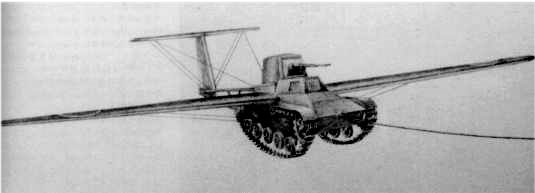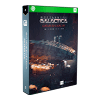Posted: Thursday, December 18, 2014 by Marco Minoli
Where I argue about a few year end numbers
More visually then anything, really

Marco A. Minoli - Marketing Director HoW
@piuemme
Posted: Wednesday, December 10, 2014 by Marco Minoli
Where I argue about the horribleness of game reviews
Again on Warhammer 40,000: Armageddon and more

Game reviews can be the greatest of things to read for a publisher. Phrases like "Where the game shines is in its use of the Warhammer fiction. Strong use of theme goes a long way in the land of hexes. The benefits that a convincingly portrayed fictional or historical setting can contribute is not only found in the flavour but in immediate accessibility", make them happy even if the same review also reads "On one level, no, it’s not a looker and it never will be" and "Despite the hundreds of unit types and meaty campaign, Armageddon feels like a snack rather than a feast, but it’s a tasty snack" (this is from the RPS review by Adam Smith).
Such reviews are fair, they get what the game is about. They don't make design choices look like big game flaws and they don't fall into the pretty obvious and mundane if-you-like-Warhammer-buy-this-game type of comment. Yes, it's a Warhammer 40,000 game, so possibly that's my target audience, thanks.
There are occasions, though, where game reviews could hit the nerves in ways that go beyond the natural disappointment. That's when considerations of a single review become the starting point of a bigger argument about the reviews themselves. They border the philosophy of judgement - maybe that's a science or a discpline - and the professionalism of critique in general. It's a complex topic and the basic questions are the usual "should a product be reviewed by someone who doesn't understand it", "should someone unfamiliar with a genre or topic be reviewing something of that genre of topic" and such.
In Gold: The Final Science Fiction Collection there is an interesting quote by author Isaac Asimov (that's in part three "On Writing Science Fiction") that reads: From my close observation of writers, they fall in to two groups: 1) those who bleed copiously and visibly at any bad review, and 2) those who bleed copiously and secretly at any bad review. Which makes a lot of sense and brings the matter to a further question that's even less easy to answer. Do reviewers need to consider that a bad review will hurt the feeling (and sales) of people who spent hours, days, weeks, months, even years in making their product?
Well, reality is that a bad review is bad for the mood, but not always bad for sales. So one gets used, with experience, to negative comments. In a time where customers feedback is one of the dominant factors for the success of a product a guy writing negative things on a specialist site is just another drop in the ocean. Of course there are negative comments that are placed in front of many more eyeballs than the one of the average Mr Common Player's view. What matters in reality is a combination of the relevance of the comment, the name of the writer and the additional views at the bottom of the article, under the score.
One thing that's not good and has no positive angle at all is when a review contains wrong facts. Take Calm Down Tom review of the same game as a great example of a list of things that are not good, neither for the game, nor for the publication. To quote a few: "It's a turn based RTS" (sure, why not)", "There's very little detail to the various units you'll be controlling" (that's a pretty bold statement), "...an iPad title that's been ported to PC..." (rise iPad players!) and my favourite "It’s a bit like playing the game of a movie or a book that you already know the ending of" (yes, or like playing a game about World War II - one would probably know the ending of that, right?).
Independently of the personal judgment and the score, wrong is wrong and it's no good. One would argue that knowledgeable customers would spot the long list of errors and ignore the article or even laugh at it. That's certainly one to hope for.
And maybe also read something more appropriate when looking for a view on a game they'd like to buy.
Once on a time, the ancient legends tell,
Truth, rising from the bottom of her well,
Looked on the world, but, hearing how it lied,
Returned to her seclusion horrified.
Marco A. Minoli - Marketing Director HoW
@piuemme
Posted: Tuesday, December 2, 2014 by Marco Minoli
Where I argue that, yes, it's a re-skin of Panzer Corps
(that's Warhammer 40,000: Armageddon)

In the same way The Adventures of Huckleberry Finn is a re-skin of The Adventures of Tom Sawyer. Same author, same set of characters, equally set along the Mississippi river. But I shall agree we're not talking about milestones in literature so I'd better choose another similarity.
So it's a re-skin of Panzer Corps in the same way Saving Private Ryan is a re-skin of Schindler's List. Take the same director, same composer, editor, cinematographer. Take the same film editor and change location, but keep the same setting: World War II sells. But I shall agree we're not oscar winning movies so I'd better choose another similarity.
It's a re-skin in the same way a marble cake is the reskin of a fudgy chocolate cream pie. You just have to take some sugar, some flour, a few eggs. Don't forget the butter and the chocolate et voilà, you've got both your breakfast cake and your desserts served in one go. But I shall agree we're not cooking our cake and eating it, so I'd better go straight to the point.
Warhammer 40,000: Armageddon is not a re-skin of Panzer Corps. It uses the same engine. Does that sound like a bad thing? To simplify, take three parts that make a game: graphics, programming, game design.
Graphics. 95% of the game graphics have been done from scratch (well, it's a re-skin after all). Over 400 units, thousands of UI elements, icons, badges, buttons. You name it. How this is all laid out is very similar to Panzer Corps, I'll give you that.
Programming. Combat model is entirely different, AI behaviour has totally changed. The two titles probably share the same code-base in that they are both hex-based, turn-based strategy games. And I could name a fair few of these. The remaining 85% of code would probably be different (although I don't have a precise figure for that).
Game Design: the overall concept of the game is entirely based on the Warhammer 40,000 world. It took the development team months of work to capture that essence. Hours of work to balance the game, find gameplay solutions to please the Games Workshop fans.
So no, please no, it's not a re-skin of Panzer Corps. There's the chocolate, there's flour and eggs and sugar and butter and here you go, such a tasty chocolate cream pie you have. With Orks and Leman Russ tanks as a topping, of course.
Marco A. Minoli - Marketing Director HoW
@piuemme
Posted: Friday, November 28, 2014 by Marco Minoli
Where I argue that maybe one day we'll sell Stukas in space and laser firing Panthers

"There is no peace amongst the stars..." and thanks for that, I say.
With the release of Warhammer 40,000: Armageddon, we've just hit the fourth sci-fi release this year. And if one adds Pandora: First Contact, it makes it five in fourteen months. Call it a trend, call it a coincidence, call it the call of the void, these four (+1) releases are charting amongst the best selling titles for the group this year. And there is more to come.
Creating credible, futuristic, imaginary worlds is not an easy exercise. It has its own challenges as much as, if not more then, re-creating historically accurate scenarios.
"If you wish to make an apple pie from scratch, you must first invent the universe". Carl Sagan
We've had the luck of working with very talented groups of people so far. Elliot Gibbs at Code Force, with the help of Erik Rutins and the guys at Proxy Studios have done an amazing job at making all this happen: Distant Worlds Universe and Pandora have generated a whole new world of opportunities for us as a group of companies, for the players and for themesleves as small, talented, development studios.
It was slightly different for Polar Motion and one would probably not rate Buzz Aldrin's Space Program Manager as a Sci-Fi game just because it has stars in it. I classify it in that area because, as a sandbox game, Ignacio and his development partners, have created an immersive world which turns pure management into an adventure of technical innovation and reach for the uknown that comes so close to the excitement of the exploration of a whole new universe.
Armageddon is of course a very well known Sci-Fi world that required a totally different set of skills to be re-created. In this case the exercise was much more similar to the crafting of an existing historical background and there is probably more literature about the 40k tanks then about most of pre-World War II war machines.
The home of wargamers is changing. Or maybe wargames are changing. Which doesn't mean leaving the traditional wargames (or old fashioned, or one could even call them 'the real thing') aside. Hex based is still cool, turn based is still the word and IGOUGO/WEGO are still very much in our DNA.
But, hey, the stars are all so bright and we definitely don't want to be "condemned to vegetate upon this globe, never able to venture into interplanetary space".
Marco A. Minoli - Marketing Director HoW

Release Date: 29 AUG 2019
Genre: Tactical, Strategic
Release Date: 18 JUL 2019
Genre: Strategic